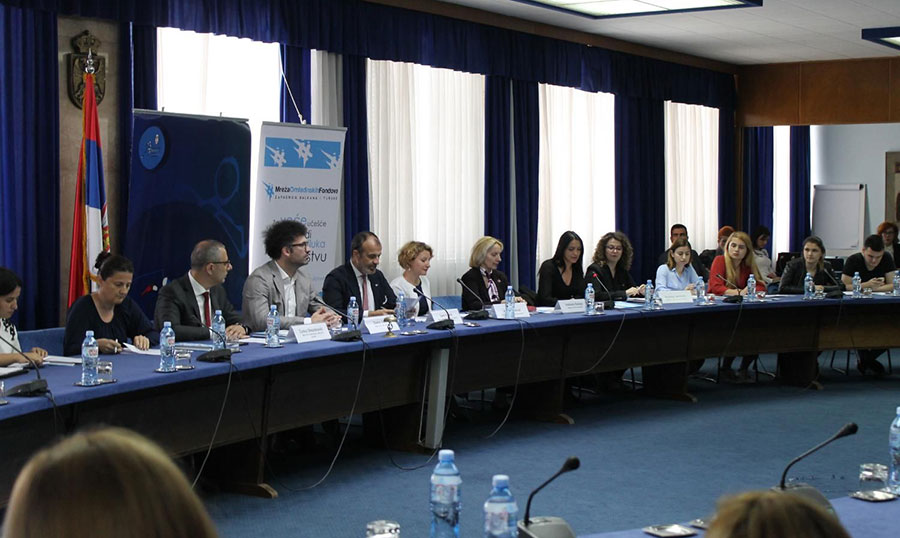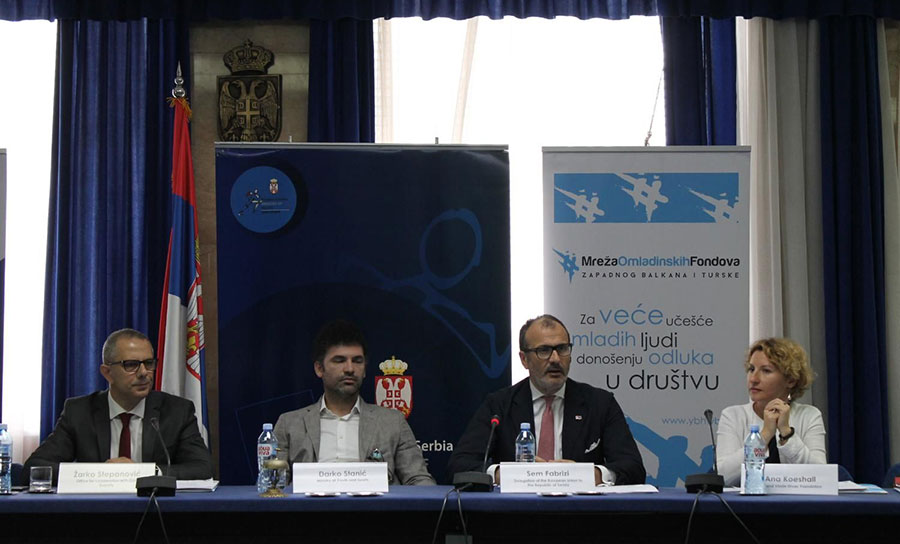According to the latest study on the status of young people, the most vulnerable category of the youth in the Western Balkans and Turkey are those hailing from rural areas, living below the poverty line and those belonging to the refugee and migrant population.
The study – carried out within the regional project “Youth Bank Hub for Western Balkan and Turkey” – also took into account the Youth Participation Index, which showed that the youth are largely excluded from the public life.
At the opening of the round table entitled “Youth participation in local communities in the Western Balkans and Turkey: challenges and perspectives,” the Head of the EU Delegation to Serbia Sem Fabrizi said that “from the human capital point of view – it being one of the key resources for social development – strengthening of youth participation policies is crucial in order to turn young people into the drivers of change, above all in the economy.” Fabrizi added that such policies uphold the underlying EU values, i.e. democracy, solidarity and human rights observance.

Fonet
The Director of the Ana and Vlade Divac Foundation Ana Koeshall said common features of all EU candidate countries participating in the project were low percentage of youth participation in decision-making and the failure of public policies to increase their participation.
“Limited participation of the youth can be noted in all areas of life and is most striking in political, economic and social life, hitting those from the most vulnerable social categories the hardest. On the other hand, the Youth Participation Index shows that the data about social life is the most lacking, hindering the creation of quality support measures for the most vulnerable,” she said.
Serbia has adopted the National Youth Strategy 2015-2025, and the round table noted that the Western Balkan countries and Turkey all faced the same issues and that experience and good practice exchange may have direct positive influence on improving the lives of the youth.




